
Wang Xiaoshuai is a Chinese film director, screenwriter and occasional actor. He is commonly grouped under the loose association of filmmakers known as the "Sixth Generation" of the Cinema of China. Like others in this generation, and in contrast with earlier Chinese filmmakers who produced mostly historical drama, Wang proposed a “new urban Chinese cinema [that] has been mainly concerned with bearing witness of a fast- paced transforming China and producing a localized critique of globalization.”

The Mannheim-Heidelberg International Film Festival, often referred to by the German-language initialism IFFMH, is an annual film festival established in 1952 hosted jointly by the cities of Mannheim and Heidelberg in Baden-Württemberg, the southwest region of Germany.

I Love You is a 2002 Chinese drama film directed by Zhang Yuan and starring Xu Jinglei and Tong Dawei. The film was a co-production between the Xi'an Film Studio and Jewel Film Investment Company.

Lost in Beijing is a 2007 Chinese drama film directed by Li Yu and starring Tony Leung Ka-fai, Fan Bingbing, Tong Dawei, and Elaine Jin. It had its international premiere at the 2007 Berlin International Film Festival on February 16, 2007. Lost in Beijing is director Li Yu's third feature film after the lesbian-themed Fish and Elephant (2002) and the drama Dam Street (2005).
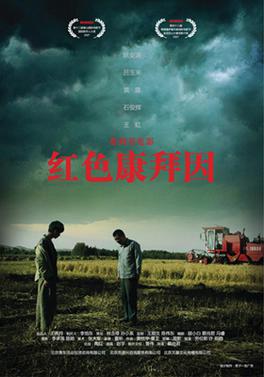
The Red Awn is a 2007 Chinese film directed Cai Shangjun. It premiered at the 2007 Pusan International Film Festival where it won the FIPRESCI Prize. The film tells the story of a father and son in China's interior Gansu province. It won the Golden Alexander, the top award at the International Thessaloniki Film Festival.

Yu Nan is a Chinese actress. Born in Dalian, Yu Nan studied at the Beijing Film Academy, where she graduated in 1999.

Spicy Love Soup is a 1997 Chinese film directed by Zhang Yang and written by Zhang, Liu Fendou, Cai Shangjun, and Diao Yi'nan based on a story by Zhang and Peter Loehr. Spicy Love Soup was produced by Loehr's Imar Film Company, Xi'an Film Studio, and Taiwanese financing.

Lunar Eclipse is a 1999 Chinese film and the directorial debut from Sixth Generation director Wang Quan'an. It is also the feature film debut of Wang's most frequent collaborator/muse Yu Nan. Unlike his next two films, which focus on rural communities, Lunar Eclipse is an urban drama following the wife of a newlywed couple who becomes mesmerized by an amateur photographer who claims to have once been in love with a woman who looked just like her. The film was produced by the Beijing Film Studio.

The Orphan of Anyang is a 2001 Chinese film from Sixth Generation writer-director Wang Chao. It is Wang's first feature film as director, and is based on a novel written by the director. The film constitutes the first part of a loose trilogy on life in modern China, followed by Day and Night (2004), and Luxury Car (2006). The film was produced by the independent Beijing-based Laurel Films, founded by screenwriter Fang Li. International distribution was by the French company Onoma.
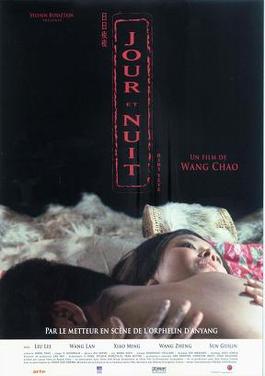
Day and Night is a 2004 Chinese film, and the second film by Sixth Generation writer-director Wang Chao. It is also known, less accurately, as Night and Day. The film constitutes the second entry in Wang Chao's loose trilogy on modern China. It was preceded by Wang's 2001 debut, The Orphan of Anyang, and would be followed by Luxury Car in 2006. The film is a Chinese-French co-production between Fang Li's Laurel Films and Sylvain Busztejn's Rosem Pictures in association with the China Film Fourth Group and Arte France Cinema; Laurel and Rosem would later reunite to produce Luxury Car.
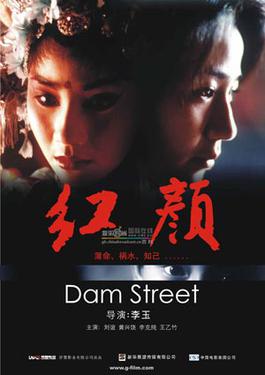
Dam Street is a 2005 Chinese film directed by Li Yu. Dam Street is Li's second feature film, after 2001's Fish and Elephant and was produced by screenwriter Fang Li's Laurel Films and Sylvain Bursztejn's French company, Rosem Films.
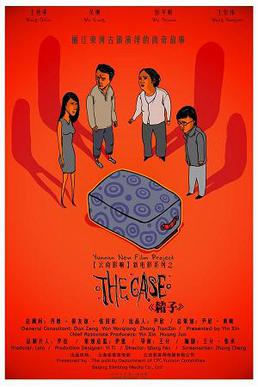
The Case is a 2007 Chinese film directed by the female first-time director, Wang Fen. It is the first film of the Yunnan New Film Project, a planned anthology of ten films directed by female Chinese directors, all taking place in the southern province of Yunnan. It was followed by The Park, also in 2007. The film was produced by Filmblog Media with the support of the Yunnan provincial government.
Father is a 2000 Chinese film directed by the writer Wang Shuo. To date, it is Wang's first and only directorial effort. The film is based on Wang's own novel, Wo Shi Ni Baba. Despite being partially backed by the state-run Beijing Film Studio, Father suffered from years of bureaucratic red tape due to being seen as an interpretation of as deconstructing authority in China. Made in 1996, the film was not screened until 2000, when it surreptitiously premiered at the 2000 Locarno International Film Festival.
Yin Lichuan is a Chinese writer, poet and filmmaker. A graduate of Peking University and ESEC, Yin made her name writing novels and poetry, including A Little More Comfort and Fucker. She is known as a member of the "Lower Body Poets." Her book of selected poems Karma in bilingual edition is translated by poet Fiona Sze-Lorrain.

The Equation of Love and Death is a 2008 Chinese dramatic film written and directed by Cao Baoping and starring Zhou Xun. The film is a Chinese and Hong Kong co-production. It is Cao's second solo feature after 2006's Trouble Makers.
Cao Baoping is a Chinese film director. He has emerged in recent years as a figure in China's "midrange" cinema industry. Some industry watchers, like Variety, have situated directors like Cao between the older fifth generation directors, such as Chen Kaige or Zhang Yimou, who have achieved major international and box-office success, and the more "underground" sixth generation directors, like Jia Zhangke and Wang Xiaoshuai.
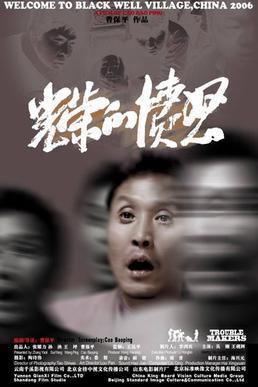
Trouble Makers is a 2006 black comedy film written and directed by Cao Baoping. It was Cao's solo directorial debut, though Cao had previously co-directed the film Absolute Emotion in 2001. Based on Que Diwei's novella, "Village Operation," which was published in a magazine in 2000, Trouble Makers had difficulty traversing the Chinese censors and often found itself lacking funds until 2005. As a result, Cao eventually inserted a happy ending that differed from ending in the original novella.
Green Hat is a Chinese film from 2003 and the debut of screenwriter Liu Fendou. Starring Li Congxi, Liao Fan, and Dong Lifan, the film tells the story of two men, one a bank robber, and one a police officer and their shared problem of unfaithful partners. In China, the phrase "wearing a green hat", refers to a cuckold. The film features full-frontal male nudity.

Breakup Buddies is a 2014 Chinese romantic comedy and road film directed by Ning Hao. It stars Huang Bo and Xu Zheng as buddies on a wild 3,000-kilometre cross-country journey from Beijing to Dali City.
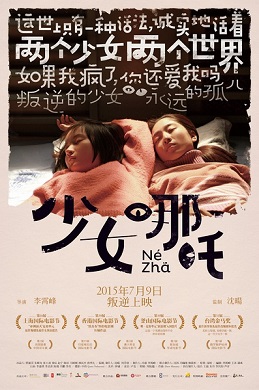
Nezha, stylized on some posters as 'NeZha' or 'Ne Zha', is a 2014 Chinese period drama film directed by Li Xiaofeng, in his directorial debut.
















